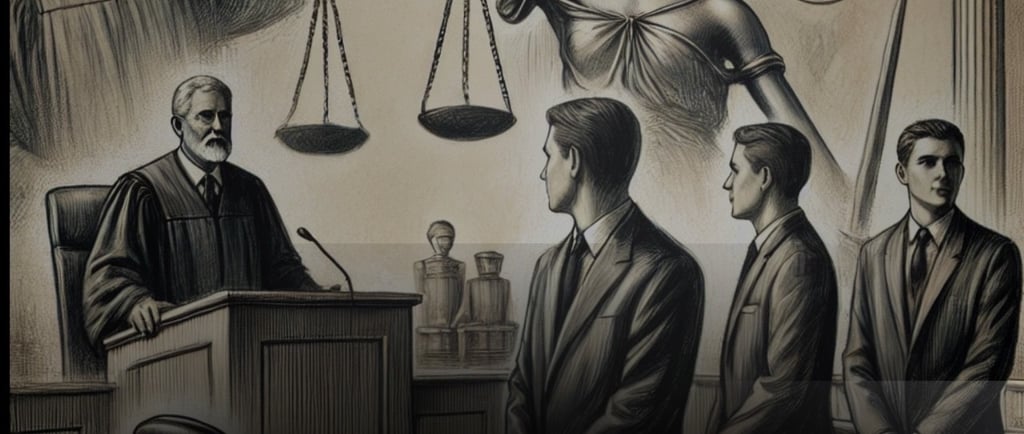Supreme Court Quashes Charges Against Husband and In-Laws in Abetment to Suicide Case
Supreme Court of India allowed an appeal by Prakash and others, overturning lower court decisions and discharging them from charges of abetment to suicide under Sections 306 and 34 of the Indian Penal Code (IPC). The judgment stems from a tragic incident involving the suicide of a 25-year-old woman, Jyoti Nagre, on March 20, 2015, and the subsequent allegations against her husband and in-laws.
12/20/20242 min read


Case Background
Jyoti Nagre, married to Prakash on November 19, 2009, was reported to have faced marital disputes and harassment, allegedly over dowry and financial demands. After moving out of her matrimonial home with her husband, the couple later separated, with Jyoti returning to her paternal home.
On March 20, 2015, she was found dead, having hanged herself at her parents' house. The initial Accidental Death Report (ADR) filed by her brother did not implicate her husband or in-laws. However, five days later, her mother lodged an FIR, alleging mental and physical harassment by Jyoti's husband, Prakash, and his family, citing an incident at a "mahalokadalat" (settlement court) on February 17, 2015, as the trigger for the suicide.
Judicial Journey
The case progressed through the judiciary:
Trial Court Proceedings: A chargesheet was filed against Prakash, his father, and his brother, alleging abetment to suicide. An application by the accused seeking discharge was rejected in December 2020.
High Court Decision: In October 2022, the Bombay High Court dismissed the appellants' plea, upholding the trial court's decision, citing prima facie grounds to proceed with the case.
Supreme Court Appeal: The appellants approached the Supreme Court, which stayed proceedings in January 2023, leading to the final judgment.
Supreme Court’s Observations
The bench, comprising Justices B.R. Gavai and K.V. Viswanathan, highlighted critical legal principles:
Mens Rea and Proximity: For a charge under Section 306 IPC, the court underscored the necessity of clear mens rea (intention) and a direct, proximate link between the accused's actions and the victim's suicide. The alleged incident at the mahalokadalat occurred over a month before the suicide, diluting any immediate instigation.
Delay in FIR and ADR: The FIR, filed five days after the suicide, was deemed an afterthought, as the initial ADR did not implicate the accused or mention the mahalokadalat.
Lack of Evidence for Abetment: The court emphasized that mere harsh words or disputes, especially with significant time gaps, do not constitute abetment. It ruled that the accused’s actions lacked the intent to provoke or push the victim towards suicide.
Key Precedents Referenced
The judgment cited multiple precedents, including:
Sanju v. State of Madhya Pradesh (2002): A 48-hour gap between instigatory words and suicide was insufficient to establish abetment.
S.S. Chheena v. Vijay Kumar Mahajan (2010): Established the importance of direct incitement and mens rea for charges under Section 306 IPC.
Mohit Singhal v. State of Uttarakhand (2024): Highlighted the absence of immediate provocation as a ground for quashing charges.
Verdict
The Supreme Court quashed the orders of the High Court and the trial court, discharging the accused from all charges. It observed that prolonging the proceedings would amount to an abuse of the legal process.
Conclusion
This judgment reaffirms the judiciary's cautious approach in cases of abetment to suicide, emphasizing the necessity of evidence establishing a direct and proximate cause for such serious allegations. The ruling underscores the balance between addressing societal issues like harassment and protecting individuals from baseless prosecution.
